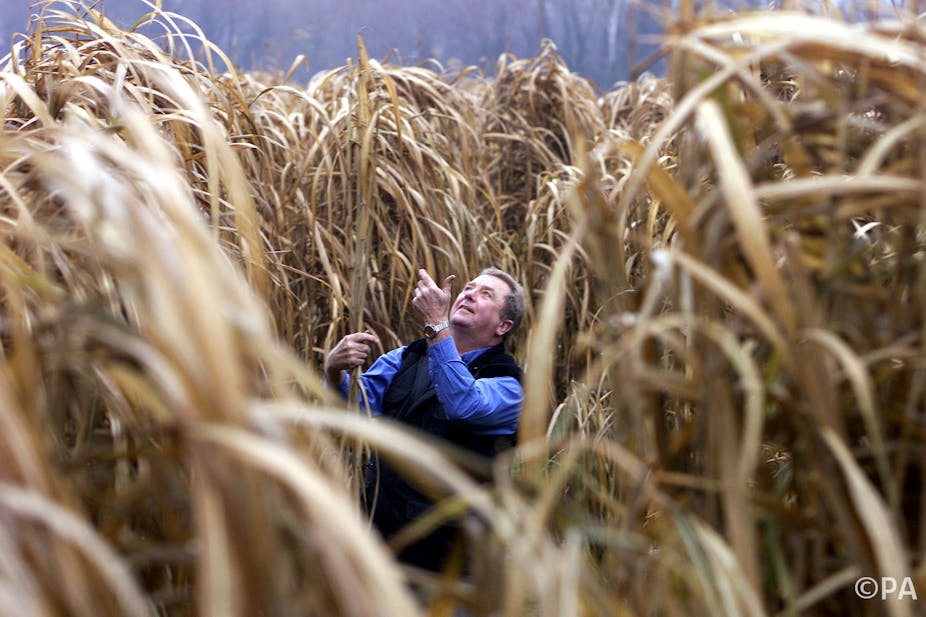Critics of the conversion of plants into biofuel have long argued that it is an issue of food versus fuel, and a recent UN report gives some weight to their argument.
Since the amount of maize needed to fill the fuel tank of an SUV could feed a person for an entire year, it is claimed that massive fossil fuel substitution programmes such as those in the US and Europe drove up food prices by taking land away from the market. Emotive languague was used and calls for an immediate moratorium on biofuel production were made. Other critics argued that biofuels were linked to deforestation and heavy fertiliser use during farming, some saying that they were even worse for the climate than burning oil.
An alternative view comes from the producers and traders investing in biofuels. They argue that while there were some justifiable concerns connected to specific biofuel projects, it made no sense to demonise the entire sector. There were biofuels done well and biofuels done badly.
The effect on food prices was overstated, especially in a context where farmers were growing more crops in total. Greenhouse gas emissions savings were being made as most producers avoided planting in rich ecological areas. Additionally, significant investments to boost agricultural yields and using non-food crops such as grasses as an alternative basis for biofuel feedstocks would reduce the impact on food supply even more. For the proponents of biofuels, these were a necessary step to tackling climate change and only marginal issues with respect to global hunger.
So the UN Committee on World Food Security report on Biofuels and Food Security, which is released this month, enters a politically charged arena. A key finding was that “the introduction of a rigid biofuel demand does affect food commodity prices”.
Two main mechanisms were outlined. First, the biofuel targets put in place by governments meant that total demand for agricultural crops has continued to outpace the increase in supply. And second, increases in oil prices have had an even greater effect on food prices as producers of maize, oilseeds and sugar switched their crops from the food to the fuel market as relative prices changed.
The report’s authors also took a dim view of the possibility of eradicating this food-for-fuel trade-off through the use of non-food crops or under-utilised land. It concluded that “any new biomass production for biofuels will induce some form of competition for land and water, which could have an impact on food security”.
The initial reaction to the report suggested it had sided with the biofuel critics. Friends of the Earth said the report is a stark reminder that “biofuel targets are driving up food prices and increasing hunger among the world’s poorest people” while the Global Renewable Fuels Alliance criticised it for overlooking the by-products of biofuels like animal feed, and downplaying the most important cause of rising food prices - the cost of crude oil.
However, seen through the prism of lobby groups seeking to capitalise on or discredit the study, the main message of the report is at risk of being lost. To my mind, it seeks to set the biofuels debate on a new course, casting biofuels as an energy source that should be supported on a conditional basis, rather than simply banned or buttressed outright.
The condition is that biofuels should be “managed so that food access or the resources necessary for the production of food, principally land, biodiversity, water and labour, are not put at risk”. What this “food first, fuel second” approach means in practice is that policies must be created to protect the rural poor from the effects of biofuel projects in advance, and trigger countervailing measures if food prices begin to spike. Particular emphasis is laid on the multi-stakeholder Global Bioenergy Partnership and the array of non-state certification schemes to develop codes for sustainable production and diffuse these among national governments.
Whereas some might see this as a capitulation to the very need for biofuels, the report makes clear that we are entering a new phase in which biofuel production will no longer be dependent on government support for commercial viability. In this sense, policy-makers will lose some of their leverage over the sector. At the same time they will be less likely to question the adverse impacts of biofuels given the need to secure cheap energy - witness the support for fracking from many governments, for example.
At this critical juncture then, the message of the report is that we must establish the right global frameworks for the inevitable growth of biofuel production. But at the same time, we must not lose sight of the aim, and need, to reduce demand for liquid transport fuel in the first place.

